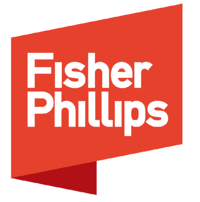READ TIME: 5 MINUTES
Many employers are struggling to increase COVID-19 vaccination rates among their workforce, concerned not only about both the safety of the workforce but also the costs of COVID-19 treatment that could be avoided through vaccination. Some are now turning to the possibility of a higher premium cost, or surcharge, for any group health plan participants who remain unvaccinated. What are the hurdles you would have to navigate if you want to impose such a surcharge on your unvaccinated workers? Here are the six questions you need to resolve before undertaking such a plan.
HIPAA Violations Can Be Avoided
Treating group health plan participants differently based upon a health factor – such as whether a participant received a vaccine – is generally prohibited by the Health Insurance Portability and Accountability Act of 1996 (HIPAA). There is, however, a narrow exception for arrangements that comply with the wellness program rules in the HIPAA regulations. Under a compliant program, an employer may condition an incentive, offered in terms of the amount of employee premium contribution, on an employee’s participation in a wellness program. Many employers are already familiar with such a system as it pertains to a smoking cessation program.
You can develop a properly designed wellness program that takes vaccine status into account. Such a program must comply with all HIPAA wellness program rules and also reflect compliance with recent EEOC guidance related to vaccine accommodations.
The Six Key Questions
When considering implementing a program that imposes a surcharge on your unvaccinated workers, you should ask the following questions:
- Does the surcharge comply with wellness incentive limits, taking into account existing incentives (such as existing smoking cessation or biometric screen programs)?
Incentives are limited to 30% (up to 50% for tobacco surcharges) of the total cost of employee-only coverage. Adding a new incentive could cause your plan to exceed the limit, which would require reducing or modifying other incentives to allow for a vaccine-related incentive.
- Does the surcharge allow you to maintain compliance with the ACA Employer Mandate affordability rules?
Non-tobacco related wellness incentives must be treated as “not met” for purposes of determining ACA affordability. Adding a vaccine-related surcharge effectively increases the cost to employees and makes it more difficult to offer the coverage at an affordable contribution amount.
- Can this be implemented mid-plan year, and if so, may employees opt out if they experience a significant cost increase?
- Does the reasonable alternative standard offered comply with the activity-only or outcome-based rules?
These two types of health contingent wellness programs have different rules for the employees to whom the alternative must be offered – all employees, or just those that have a valid need for an accommodation.
- Do state laws prevent, or otherwise limit, such a program?
- Will booster shots be required to earn the incentive, and if so, at what point will you conclude that booster shots are necessary for workers to be considered “fully vaccinated”?
Proceed with Caution
Some employers have considered limiting group health plan coverage to those that are vaccinated, or perhaps limiting health plan claims for COVID-19-related illnesses to only those that are vaccinated. However, these suggestions would clearly violate HIPAA non-discrimination rules, and therefore should be avoided.
We’ll monitor the situation and provide updates as developments occur.

